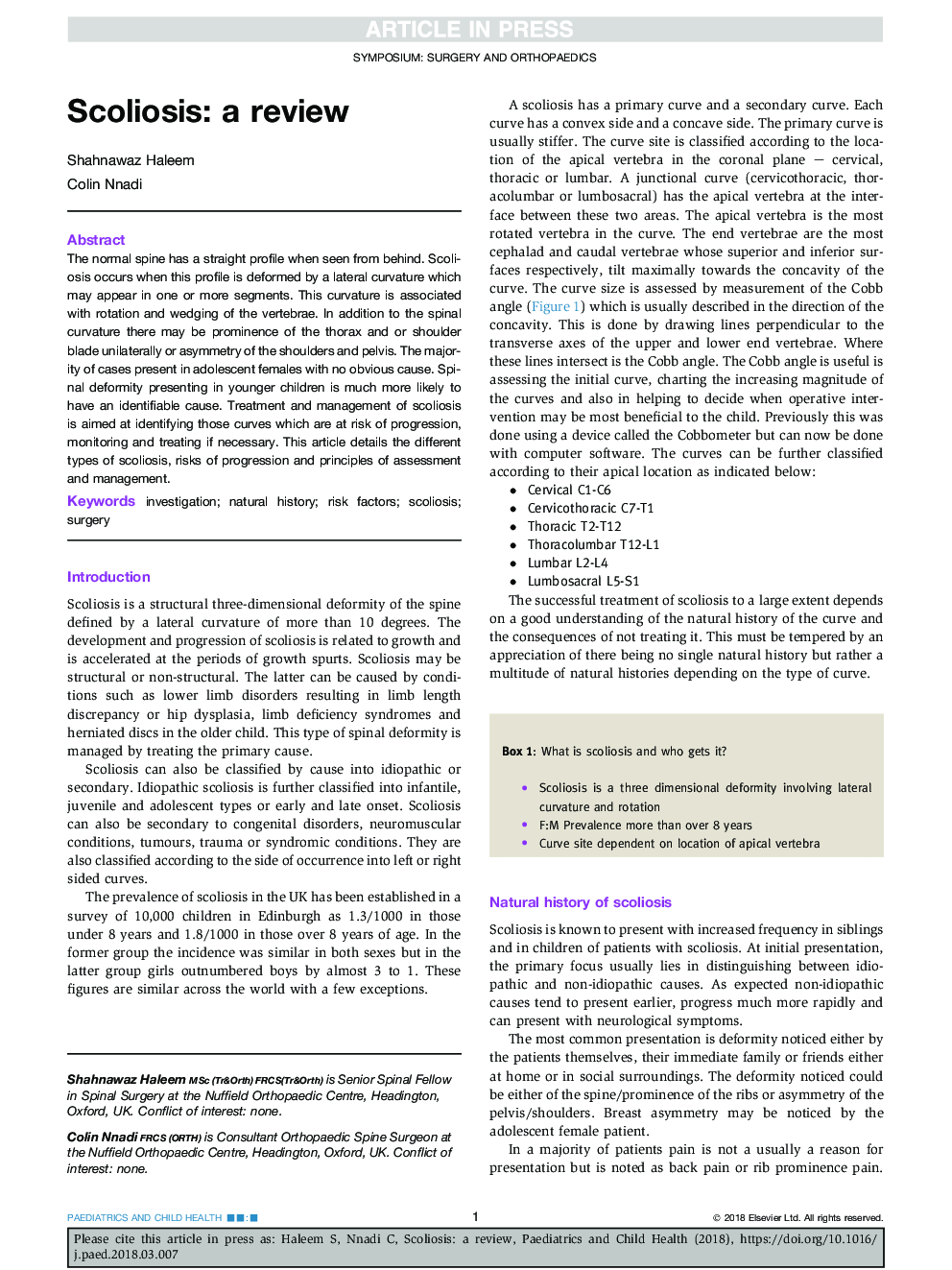| Article ID | Journal | Published Year | Pages | File Type |
|---|---|---|---|---|
| 8813093 | Paediatrics and Child Health | 2018 | 9 Pages |
Abstract
The normal spine has a straight profile when seen from behind. Scoliosis occurs when this profile is deformed by a lateral curvature which may appear in one or more segments. This curvature is associated with rotation and wedging of the vertebrae. In addition to the spinal curvature there may be prominence of the thorax and or shoulder blade unilaterally or asymmetry of the shoulders and pelvis. The majority of cases present in adolescent females with no obvious cause. Spinal deformity presenting in younger children is much more likely to have an identifiable cause. Treatment and management of scoliosis is aimed at identifying those curves which are at risk of progression, monitoring and treating if necessary. This article details the different types of scoliosis, risks of progression and principles of assessment and management.
Related Topics
Health Sciences
Medicine and Dentistry
Perinatology, Pediatrics and Child Health
Authors
Shahnawaz Haleem, Colin Nnadi,
